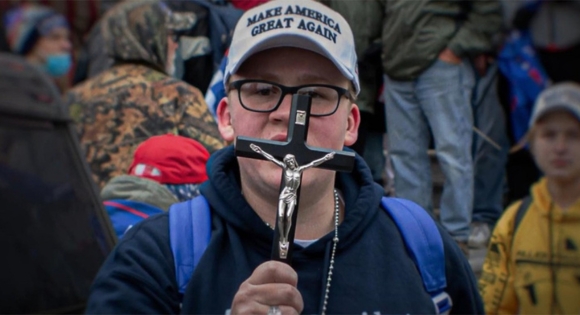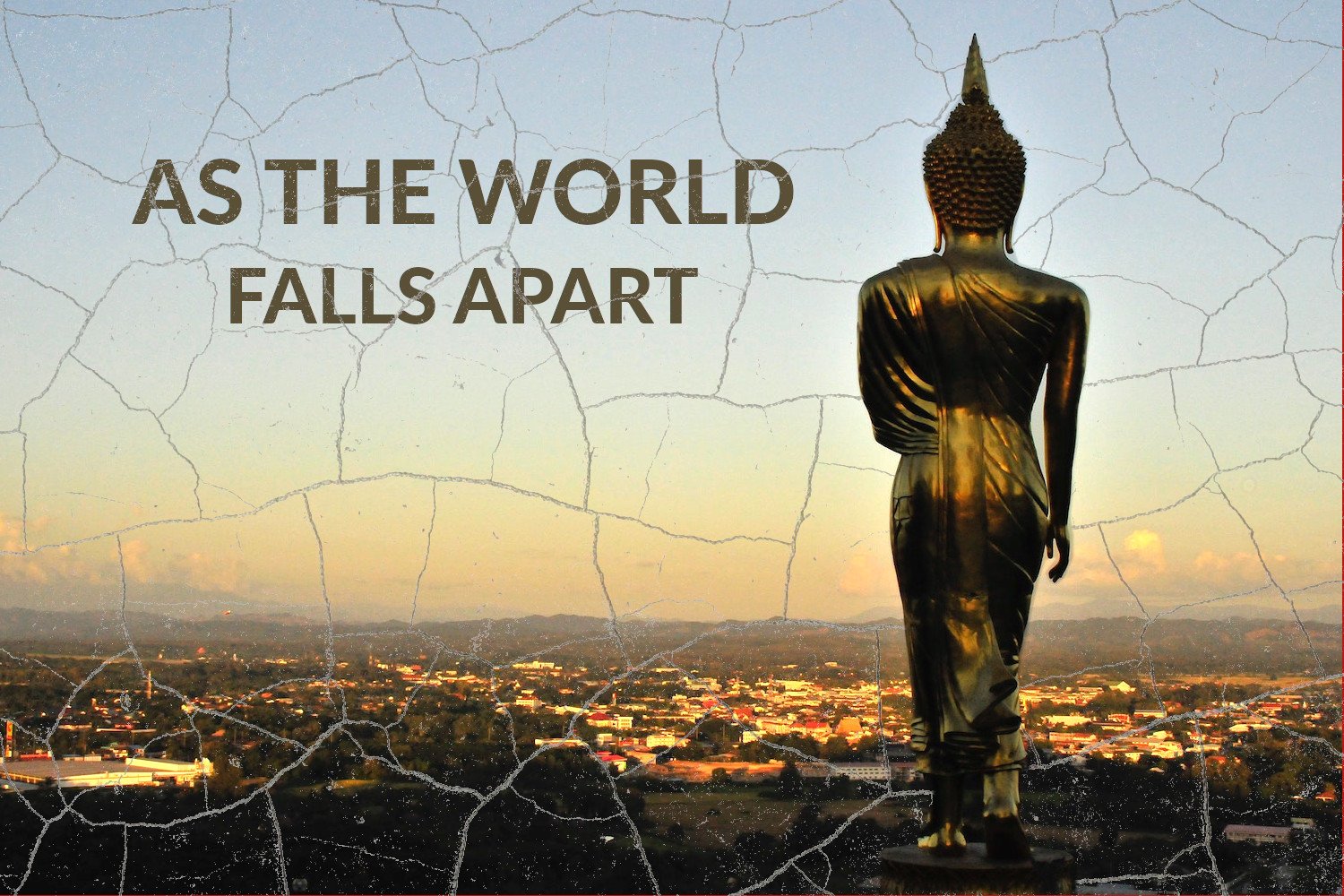After director Steve Ujlaki showed his film Bad Faith at the conference on Public Theology and Public Policy last February, the pastors and activists present needed a moment. They were shook.
I had not attended the evening screening because, after a day of being introduced to Project 2025, I was already an exhausted puddle of fear.
A black, female colleague greeted me early the next morning and was still shook. Her takeaway was simply this: that Christian nationalism is (yet another form of) racism-by-another-name; in other words, it is white nationalism, hold the Christian.
The film provides convincing evidence that this movement is racist in origin and aim, as well as evidence that Christian nationalism is just anointed autocracy, thus the film’s subtitle: “Christian nationalism’s unholy war on democracy.”
Ujlaki and his co-director Chris Jones interviewed historians, activists, and writers (including interfaith Eboo Patel, one of S&P’s Living Spiritual Teachers). They also interviewed leaders and pastors from a large swath of the Christian tent: from the pastor of Patriot Church in Tennessee to the editor of Christianity Today (an evangelical magazine founded by Billy Graham) to Bishop William Barber of the Poor People’s Campaign (another Living Spiritual Teacher).
What emerges from these interviews and from historic footage is that, while Christian nationalism is not new — Americans across history have considered the U.S. a “Christian nation” “favored by God” — an extreme and divisive form of it has coalesced into the mainstream under Donald Trump’s Republican Party.
(One point not well represented by the film is that Christian nationalism is not entirely partisan. While in the political arena Christian nationalism is espoused by right-wing Republicans, mainline Protestants, who are often Democrats, have supported Christian nationalism by, for instance, promoting the motto “in God we trust,” celebrating military holidays in church, and flying the American flag in sanctuaries.)
The current conditions of Christian nationalism were set in motion by a strategist named Paul Weyrich, who founded the extremely influential Center for National Policy and wrote a playbook for the ascendency of a theocratic state. This manifesto describes an “entirely destructive” movement which would “weaken” and “eventually destroy” all “existing institutions.” It would make an enemy of religious pluralism; it would de-center accommodationist republicans like Ronald Reagan (!), who betrayed Weyrich’s plan by appointing pro-choice Sandra Day O’Connor to the Supreme Court; and it would promote a mentality of “apocalyptic fervor.”
The film does a decent job of clarifying the somewhat dizzying array of maneuvers that, over time, allied Christianity with a narrow set of political beliefs that, in turn, led to the ascendance of conservative, white, patriarchal, politicians and judges.
Here’s just one example of a maneuver that Bad Faith highlights: the Center for National Policy and its affiliates developed a network of loyalist pastors, and with their cooperation, the CNP did deep data-mining of church directories; this data included self-reported mental and behavioral health issues and treatments. The CNP then used this data to target vulnerable populations with its Christian nationalist message that voting your Christian values means voting Republican.
The cynicism Ujlaki and Jones unmask might be overwhelming in the moment, but after a few spiritual practices to calm reactivity, we must push back. Resourced with the film’s insights, we can better protect the precious right that every American has to worship or not worship any God or no God. We can make the world safer for Muslim Americans, Jewish Americans, Hindu Americans, Sikh Americans, atheist Americans, and the list goes on.
And perhaps, seeing the utter cynicism of cloaking a power grab in Christian terms, we can act on behalf of Christianity itself, which is in grave danger of detaching completely from what Jesus of Nazareth taught: good news for the poor and the oppressed; blessings on the meek and the peacemakers; love for your neighbor and your enemy.
Publisher: Source link






